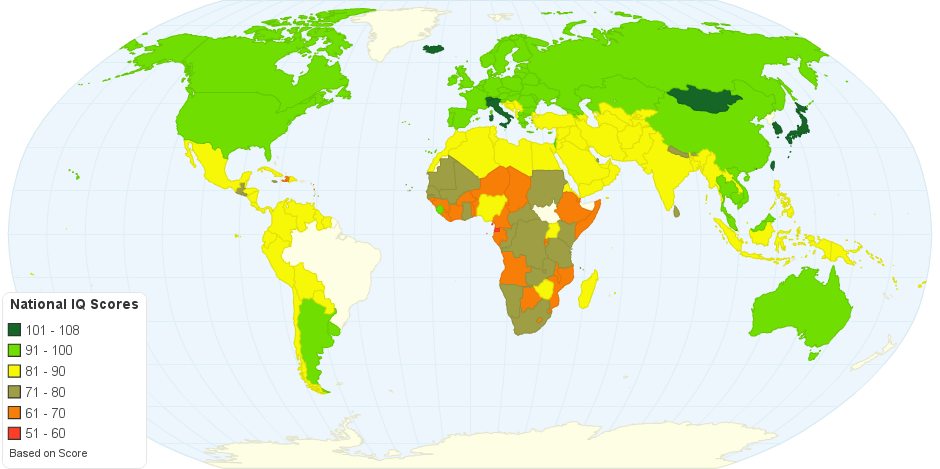This chart shows the IQ Scores by Country.
An intelligence quotient (IQ) is a score derived from one of several standardized tests designed to assess human intelligence. The abbreviation "IQ" was coined by the psychologist William Stern for the German term Intelligenzquotient, his term for a scoring method for intelligence tests he advocated in a 1912 book. When current IQ tests are developed, the median raw score of the norming sample is defined as IQ 100 and scores each standard deviation (SD) up or down are defined as 15 IQ points greater or less, although this was not always so historically. By this definition, approximately two-thirds of the population scores between IQ 85 and IQ 115. About 5 percent of the population scores above 125, and 5 percent below 75.
IQ score are used for educational placement, assessment of intellectual disability, and evaluating job applicants. Even when students improve their scores on standardized tests, they don't always improve their cognitive abilities, such as memory, attention and speed. In research contexts they have been studied as predictors of job performance, and income. They are also used to study distributions of psychometric intelligence in populations and the correlations between it and other variables. Raw scores on IQ tests for many populations have been rising at an average rate that scales to three IQ points per decade since the early 20th century, a phenomenon called the Flynn effect. Investigation of different patterns of increases in subtest scores can also inform current research on human intelligence.
10 years ago

